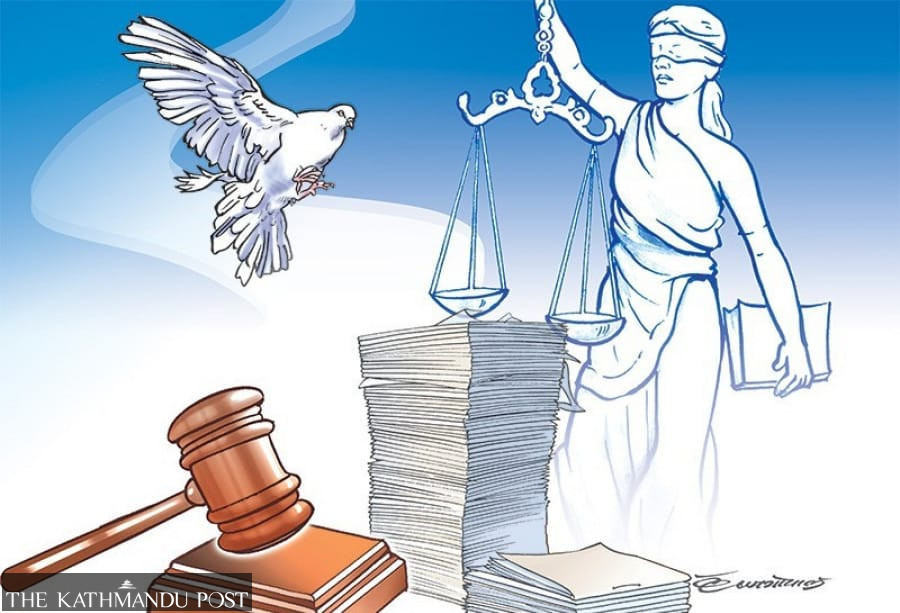Columns
Trust: The cornerstone of the TJ process
Political consensus is not enough for a durable solution. More important is building trust.
Charan Prasai
On August 14, 2024, the House of Representatives (HoR) passed the bill to amend the “Enforced Disappearances Enquiry” and “Truth and Reconciliation Commission” Acts 2014 without substantial debate, undermining the rights of the victims. Following its adoption by the National Assembly and the approval of the President, the bill will be enacted as a third amendment.
Addressing the lower house before passing the bill, Prime Minister KP Sharma Oli, Nepali Congress president Sher Bahadur Deuba and Maoist Centre chair Pushpa Kamal Dahal expressed their shared views on the bill, claiming it was victim-centric, met international standards and complied with Supreme Court orders. However, except for rape cases and serious sexual violence, intentional or arbitrary killing, enforced disappearances and inhumane or cruel torture, the bill doesn’t meet their claim. The primary concerns lie in categorising crimes, which remain unaddressed.
While some groups have welcomed and supported the bill, mainstream victim groups, nevertheless, are advocating to make the process ‘victim-centric’ to attain tangible results. They have continuously pressed the lawmakers to improve the objectionable flaws and seize the opportunity that comes with the amendment.
Serious flaws
Not recognising “surviving enforced disappeared” people as victims is one of the flaws contradicting the international definition. Engaging child soldiers (verified by UNMIN) in war crimes committed by security forces or armed groups is confined to reparation in the bill. The classified non-pardonable serious human rights violations and pardonable human rights violations are severely problematic. The crimes that fall under serious human rights violations are kept in the ambit of human rights violations, which has caused a strong objection to not complying with the principles established in our so-called nationally driven process.
Besides the grave human rights violations, according to the bill, any crimes committed against Nepal’s prevailing law, international human rights, or humanitarian laws are categorised as amnestiable. This means that crimes like torture, kidnapping, amputation and disability with serious torture, including war crimes and crimes against humanity, are subject to amnesty with the free consent of the victims. It also has a provision of a 75-percent reduction in sentencing, amounting to disguised amnesty, which contradicts the principle that criminal sanctions must be proportionate to the gravity of the crime and undermines the fundamental role and competency of the judiciary. Such provisions neither comply with international standards nor follow the Supreme Court orders.
Widespread concerns
The bill has drawn international attention, with many diplomatic envoys and development partners taking to social media to comment and congratulate. On X, the UN Resident Coordinator Hanna Singer-Hamdy cautiously commented, “Engaging victims is imperative ... The UN stands ready to support inclusive TJ aligning with international human rights commitment and standards”. US Ambassador Dean R Thompson congratulated but also diplomatically stated, “A meaningful moment in Nepal’s journey to shaping its own peaceful, prosperous, resilient and democratic future”. EU and Swiss ambassadors called it a historic achievement and reiterated their full support for its implementation. These X posts from the development partners are perceived as goodwill gestures for completing the peace process without delay. However, they don’t ignore international obligations and criminal accountability under this pretext.
The legitimacy of the whole process lies in adhering to transitional justice (TJ) principles, which are based on truth-seeking, justice, reparation and non-occurrence through institutional reforms. Nepal’s long-time commitments to international human rights and humanitarian laws come into the picture. Addressing the deeply rooted impunity and putting the country back on track with the rule of law towards a functioning and inclusive democracy and sustainable peace is essential.
During UN Secretary-General Antonio Guterres’ official visit to Nepal in October, TJ was recognised as a complex but vital way of securing lasting peace. Addressing Parliament, he said TJ needed to be inclusive and comprehensive and keep victims at heart for it to succeed. In a press meeting, he reiterated, “The United Nations stands ready to support your victim-centric process, and its implementation that meets international standards, and your own Supreme Court’s rulings.”
Nepal is committed to the Universal Declaration of Human Rights 1948 and is a state party to various international human rights instruments, including the Geneva Convention, the Convention on Civil and Political Rights, the Convention against Torture and the Rights of the Child, and other international human rights laws. The authorities cannot ignore these international commitments. Moreover, it has also enacted the National Penal (Code) Act 2017, meeting international obligations enforcing criminal accountability.
Embracing TJ’s core values
Ensuring accountability for serious crimes should not be seen only as victims’ rights but as a legitimate concern for the post-conflict society. This determines the kind of future we are handing over to the next generation. It is time we raised the following questions: Are we building a just society with zero tolerance for impunity and strengthening the rule of law? Does this process that ensures non-repetition and durable peace fall under TJ’s core values? Will it break the culture of deep-rooted political violence?
Finally, only seeking political consensus, as in the past, is not a viable solution to this process. The precondition of TJ’s success lies in earning the ‘trust’ of people, especially victims. However, the bill taken as the foundation of the process cannot do so, as the steps taken so far are designed to protect the perpetrators’ interests. In these circumstances, the victim leaders and the civil society involved in ending the process are reluctant to trust the ruling authorities, who have often failed to fulfil their promises.
Three global rights organisations, Amnesty International, Human Rights Watch and the International Commission of Jurists, issued a joint statement on Tuesday to ensure the integrity of the process and bring the law in compliance with Nepali and international legal standards. The bill indeed includes positive provisions, but serious accountability gaps must be addressed.




 13.12°C Kathmandu
13.12°C Kathmandu















